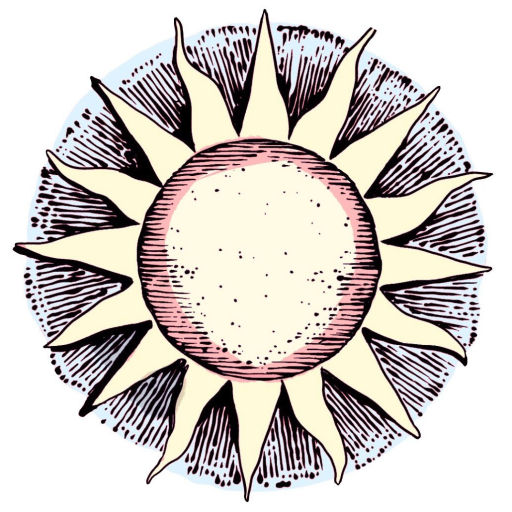Maxwell’s Remonetization
In my absolute willingness to turn over creative guidance to the Editor, I wonder if I may have overestimated her expertise. The relationship between a writer and an editor should involve careful collaboration, I think, or a playful push and pull. It should involve a balance, not necessarily of skills, but of power.
Or so I imagine.
Somewhere along the way I seem to have given up total control to the Editor, assuming, like I do of almost every person I meet, they she knew something about this world that I did not. As I watch her struggle with the crank of an old souvenir penny-crusher, I wonder if I’ve put too much trust in her lead and I worry about the process of reclaiming that power peacefully.
“I don’t think this is the one,” I venture, and she glares at me.
“What makes you the expert?”
“If I wrote the book-” I reason, “-and you assume I did. If I wrote that it would be easy once you found the right machine, it’s not going to be hard.”
She continues to glare and I shrug.
“I never try very hard.”
‘The span known, among exonumists, as the Period for Contemporary Elongateds has already far surpassed the 20-year Period for Modern Elongateds, the distinguishing factor of which was that said elongated exonumia were mainly created and sold as trinkets in stores rather than crushed fresh on-site by the sheer manpower of the tourists themselves. The early timeline of the Elongated Exonumia Tradition is somewhat contested in the field and crushed coins existing prior to the 1960’s are simply called ‘oldies,’ a term that is just as likely to refer to actual, machined designs as it is to nickels left on train tracks.
Suffice to say that the off-centered copper stamping of a smiling gorilla that you’ve frivolously squandered your laundry money on has a long, absurd history and, no doubt, a long, absurd future.
The Period for Contemporary Elongateds is coming to a strange end with the discovery of a mysterious setting available on a series of modern penny-crushing machines in rural Iowa. The most reliable of these machines can be found at the ‘Diesel Dump,’ a small gas-station, laundromat, and dive bar that is popular both with the locals and with a certain brand of roving hipster. By pulling the crank out at its base, as though one is preparing to set the time on their watch, the machine can be operated in reverse and, fed any type of elongated copper, it will produce two quarters and an old penny.
The process has become known, in certain circles, as ‘Maxwell’s Remonetization’ and the machine, ‘Maxwell.’ ‘Maxwell’ and its mysterious process remained a strange but benign attraction until late 2017 when Alexander Horton, a longtime exonumist and recent drug-addict, arrived at the ‘Diesel Dump’ and exchanged his formidable collection of elongated coins for $350 dollars in warm quarters and pennies. The event prompted Valeria Isabella, owner of the ‘Diesel Dump,’ to admit that she hadn’t ever given the machine much thought, neither emptying nor servicing it in the several decades it has gathered dust near the door.
Experts have confirmed that ‘Maxwell’ is returning crushed pennies to their original forms, not just exchanging them for equal value, and that the quarters paid back for the trouble are identical to those used to pay for the initial elongation. The ‘experts,’ it should be said, are all members of a quasi-cult that has formed around ‘Maxwell’s Remonetization’ and believe that the machines capable of the process are acting against the slow decay of our universe. These strangers stalk tourist hubs with heavy pockets and a jangling gait, sure that, in repairing the nation’s flattened coinage, they ward off time’s arrow.
Those in opposition of the ‘Remonetizationist’ movement have criticized its followers for glorifying the past through the worship of old money. The cult leaders have denied these accusations, stating they act only against entropy and are not at all opposed to change.’
‘Maxwell,’ it turns out, has been moved near the counter so that the ‘Remonetizationists’ can be easily monitored. The crank pulls forward with a satisfying thunk and the Editor glares, again, to see that I was right.
From her wallet, the Editor pulls an old souvenir penny, dark with tarnish. She hands it to me without explanation. It says ‘CLOWN TOWN, 1991’ and features a wide, cartoon grin from which several teeth are missing.
“My sister stole my lucky quarter for this,” she says when I hand it back, “And it’s been a pretty shitty thirty years.”
The Editor bends the metal to that it fits into the machine’s input tray and slams it backward. We work the crank together and ‘Maxwell’ groans with mysterious internal effort. After a minute, or so, three coins clatter out the bottom. The Editor retrieves them and she smiles, instantly, in recognition.
“That’s the one.”
The remaining 26 cents is thrown into a pile that eventually pays for two soft-serve ice creams and a coffee on the patio of the ‘Diesel Dump.’ The sun is setting and we haven’t made plans for the night, a prospect that would normally worry me, but seems to be mitigated, in part, by the Editor’s renewed calm. She fingers the quarter incessantly, twirling it on the table and dropping it often enough that I suggest she pocket the thing before it’s lost again. She does, and her hand remains there with it as the ice cream melts to a chocolate puddle on the cheap plastic furniture.
-traveler

Recent Comments